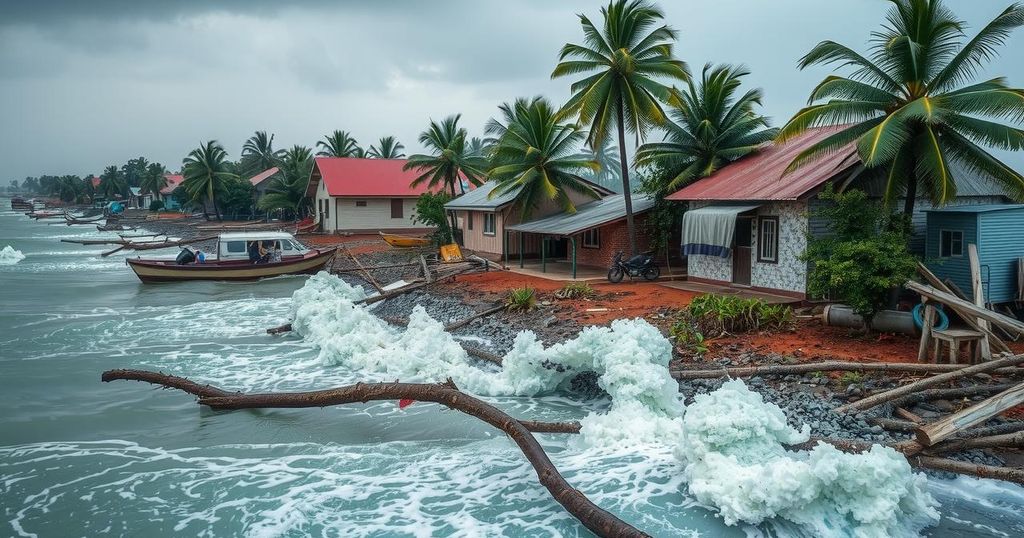Impact and Urgent Response to Tropical Cyclone Chido in Mozambique

Tropical Cyclone Chido devastated communities in Mozambique after making landfall on December 15, 2024, resulting in severe casualties and extensive damage. Approximately 453,971 people have been affected, with significant efforts underway for emergency response despite ongoing challenges. The current humanitarian crisis is complicated by health emergencies and the need for urgent relief to support recovery efforts.
Mozambique is currently grappling with the catastrophic aftermath of Tropical Cyclone Chido, which made landfall on December 15, 2024. The cyclone unleashed torrential downpours and fierce winds, resulting in widespread destruction across communities. Casualties include approximately 120 fatalities and 868 injuries, with over 453,971 individuals affected, according to the National Institute for Natural Disasters (INGD). Many structures, including homes, schools, and healthcare facilities, suffered extensive damage. Particularly affected areas include Cabo Delgado Province, where approximately 272,000 residents have been severely impacted, and Nampula Province, home to another 175,169 individuals facing the cyclone’s wrath.
The assessment efforts conducted post-cyclone have revealed communities in disarray. In Cabo Delgado, entire districts like Mecufi and Chiure witnessed near-total destruction of housing. With over 90 percent of inhabitants relying on makeshift shelters, the cyclone’s ferocity left many with nothing. Furthermore, the Nampula Province is dealing with a cholera outbreak aggravated by the rains, further complicating the public health emergency amidst the destruction.
In terms of infrastructural damage, vital services have been severely disrupted, with roads rendered impassable and communication networks failing. The humanitarian situation has been exacerbated by ongoing crises in Mozambique, including conflict-induced displacement and a drought affecting millions. Despite prior government preparedness efforts, including early warnings from INGD that enabled some evacuations, the humanitarian needs continue to outstrip available resources.
Urgent relief efforts are necessary to meet the immediate needs of affected communities, including shelter, food, clean water, and healthcare services. Additionally, the risk of gender-based violence, mental health challenges, and loss of livelihoods are ongoing concerns. Reports indicate worrying trends of GBV incidents among displaced populations, necessitating a comprehensive response that includes focus on prevention and advocacy with local authorities. Moreover, while the humanitarian operation initially mobilized $5.8 million for response efforts, additional funding is critical to sustain the ongoing relief efforts and address the dire humanitarian landscape in Mozambique.
In Mozambique, the consequences of Tropical Cyclone Chido have been disastrous, with the cyclone striking at a particularly vulnerable time for many communities already facing crises from violence and natural disasters. The cyclone has not only resulted in structural damage but also emerged amidst an ongoing cholera outbreak that poses a significant health risk. Given the compounding challenges of drought and conflict in the region, the humanitarian needs of the affected populations are severe and urgent.
In summary, Tropical Cyclone Chido has wreaked havoc in Mozambique, affecting over 450,000 individuals and leading to significant loss of life and infrastructure. The response efforts are hindered by ongoing crises, including health emergencies and inadequate resources. As the humanitarian community seeks to address the intricate needs of the affected populations, urgent action and additional funding are critical to provide the necessary relief and support recovery efforts.
Original Source: reliefweb.int








